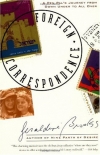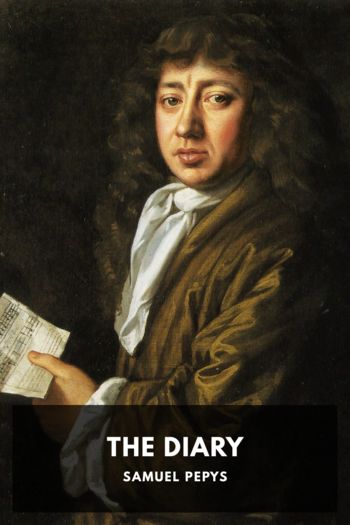Foreign Correspondence: A Pen Pal's Journey by Geraldine Brooks (finding audrey .TXT) 📗

- Author: Geraldine Brooks
Book online «Foreign Correspondence: A Pen Pal's Journey by Geraldine Brooks (finding audrey .TXT) 📗». Author Geraldine Brooks
We have grown older together, trapped in the aspic of our age gap. No matter what difficult things I may master in my separate life, in my sibling life I remain the klutz who can be counted upon to spill the claret on my sister’s cream silk upholstery or to be so assiduous in turning off appliances before I leave her house that I unplug everything, including the freezer. When Darleen is eighty and I’m seventy-two, the four-year-old will still be there somewhere, forever failing to point her toe.
But while it was hard to be kid sister to Darleen’s dazzling presence, the eight-year gap in our ages cost her far more than it cost me. It meant that she came of age in an Australia still stifled by conservatism and misogyny. Women were invisible in Australian politics, rarely running for so much as a local council seat. No woman dared to enter that sanctum sanctorum of Aussie male social life, the public bar of the corner pub. At parties, the sexes divided almost as thoroughly as in Saudi Arabia, with no self-respecting Aussie male prepared to concede that a woman might have something to say that would interest him.
In retaliation, women concocted “bloke jokes”: What’s an Aussie bloke’s idea of foreplay? Answer: “You awake, luv?” Why do Aussie blokes come so quickly? Because they can’t wait to get down to the pub and tell their mates about it. The very existence of these jokes signaled the stirrings of women who knew that something was wrong. But it would be several more years before Germaine Greer came home to Sydney from Cambridge University, wielding words like an avenging sword and arguing almost everyone in my generation into embracing feminism.
Meanwhile, in neighborhoods like ours, girls didn’t go to university. Only a rare, derided “bluestocking” aspired to anything but a makework job to fill up the interregnum between school and marriage. A 1960 study showed that less than one percent of the daughters of our social class went on to university. Instead, the girls in our circle became nuns, nurses or teachers. If none of those careers appealed, they became secretaries. Darleen had a gift with words, but she was bored stiff by our school’s limited, conventional curriculum. In art, her innate talent was obvious but, to the nuns, art remained a Jane Austen-esque “accomplishment”—not a viable career option. When they gave Darleen a B for work that clearly merited a higher grade, my mother demanded to know why. “Mrs. Brooks,” exclaimed the art teacher, “you know what bad types she’d meet in the art world! Surely you don’t expect me to give her an A and encourage her?”
As soon as Darleen left school, her creativity expressed itself in dazzling clothes she designed herself. In the mornings, as I shrugged on the blue shift, scratchy navy sweater, felt blazer, gloves and hat of St. Mary’s British-style school uniform, Darleen dressed in hot pink mini-skirts or narrow-jacketed suits and matching caps that sat fetchingly on her splendid hair.
Everyone seemed to have a crush on her, including the baker. He delivered our bread every morning, running from door to door in high-cut shorts that showed off his tanned, muscular thighs. He sped up and down the street as if trying to make a pressing deadline, but if Darleen came to the door, he lingered, rummaging among the loaves in his deep wicker basket to find the perfect one to present to her. One morning, as she paid him, one of her just-glued false eyelashes fell off and drifted gently into his basket, lost among the whole wheats and the crusty whites. The two of them knelt there in the doorway and riffled through the neighborhood’s bread supply until they found it, at rest on a raisin bun.
I bathed in Darleen’s reflected glitter when I could, stewed in childish envy when I couldn’t. Then, gradually, she began to take an interest in me, perceiving needs that our parents missed. She made sure I got a bra before it became a schoolyard issue. She took me shopping for my first non-little-girl outfit: navy culottes with a ribbed sweater. And then, in January 1966, she brought me my first pen pal.
Darleen came home one night from her job in the Telegraph newspaper’s circulation department with the news that her coworker was Theodora—the columnist Ross Campbell’s eldest daughter, whose real name was Sally. Little Nell’s real name, Darleen told me, was Laura. “Sally says her dad just picked the ugliest names he could think of to call his kids in the column.”
Soon, Sally came to visit. She was as dazzling as Darleen, but in a wild, bohemian style, with huge looped earrings and tangles of untamed flame-red hair. I yearned for a fascinating friend like Sally—somebody different, who didn’t live in a house just like ours and go to the same school and same church every Sunday. I thought about Nell, or Laura: how exciting to have an assumed name, an alias, a nom de guerre, or de plume, or de something. That was the kind of person I wished I could meet.
From my bedroom, I could hear Sally and Darleen laughing together over things too sophisticated for me to understand. Instead of getting on with my homework, I doodled in the margins of my notebook, over and over again, in different handwriting:
Nell/Laura
Nell=Laura
Nell Nell Nell.
My father was always writing songs and poems for people he admired—Einstein, Churchill. I decided to write one for Laura Campbell:
Now I know your name’s not Nell
It doesn’t seem the same.
But I still like you anyway,
I know you’re not to blame.
When my father came in to say good night, I showed it to him. He laughed. “Why don’t you send it to her?” He’d written fan letters to Ross Campbell over the years, and always received charming replies. In the morning, before I had a chance to change my mind,





Comments (0)